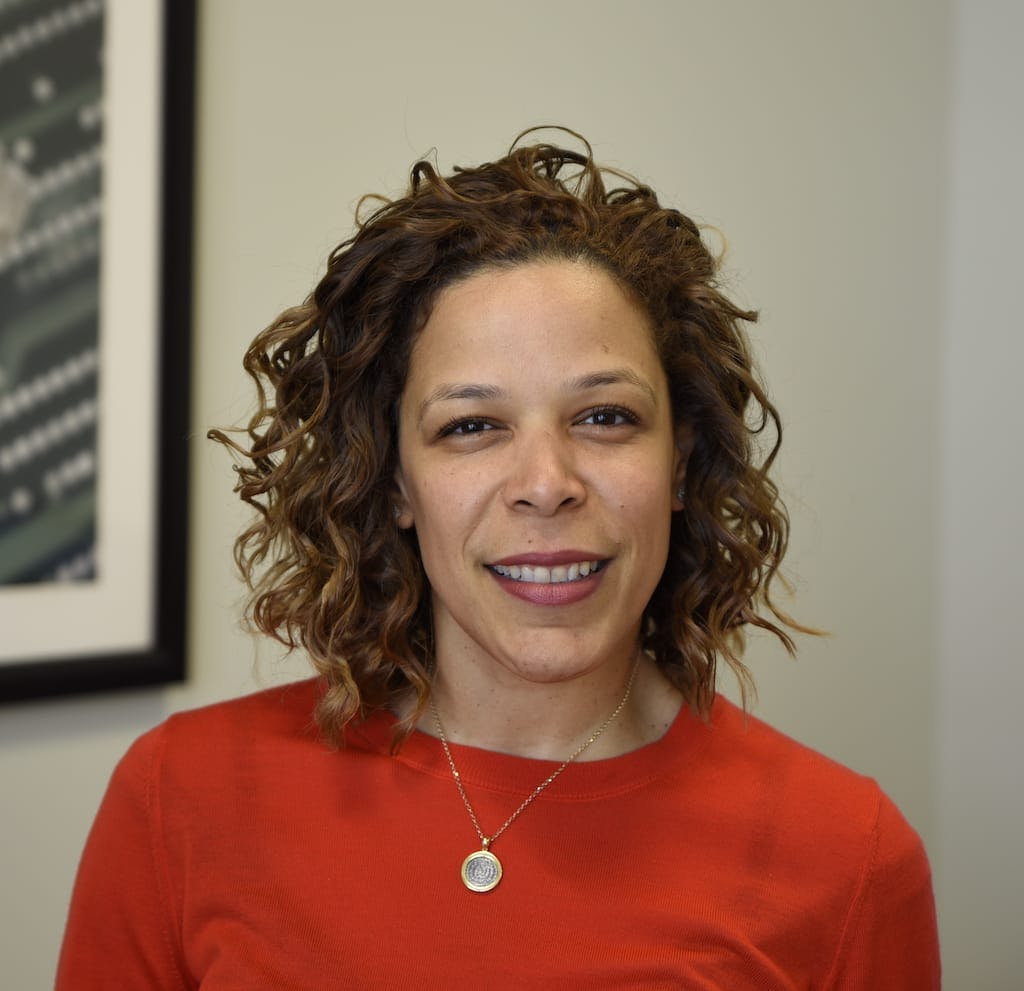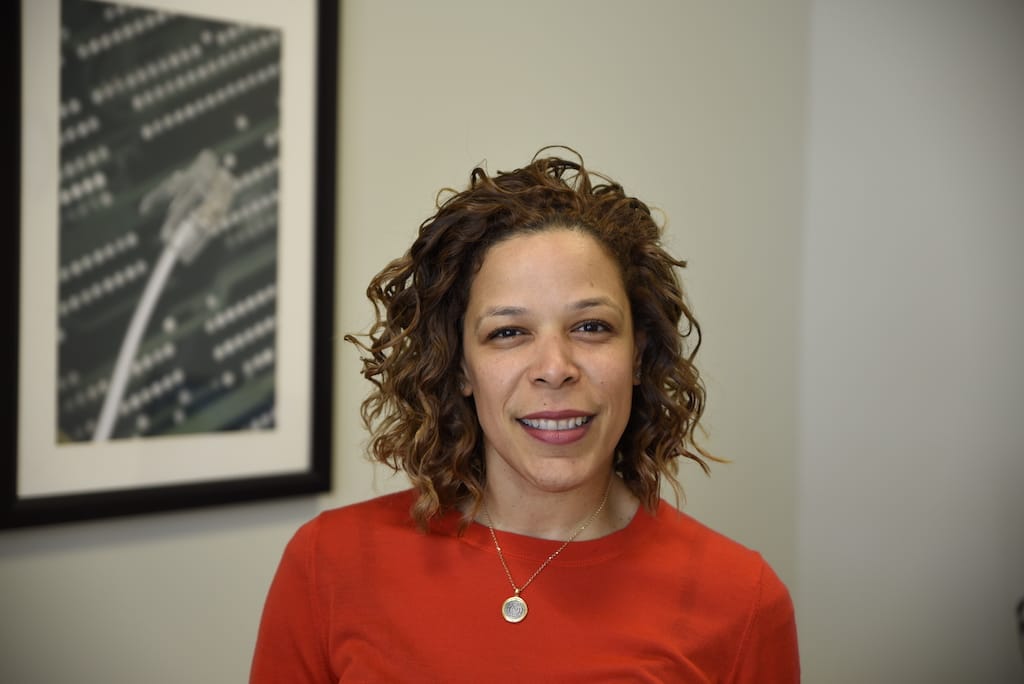Interview with Elaine Montilla, Assistant Vice President and CIO for Information Technology at The Graduate Center, CUNY
Published on Feb 8, 2021
8 min read


Biography. Elaine Montilla is the Assistant Vice President and CIO for Information Technology at The Graduate Center, CUNY, a Forbes Technology Council member and contributor, an AMA Women’s Leadership Center presenter, and a TEDx speaker. She is an accomplished senior executive with over two decades as an IT leader in higher education. Montilla is also the founder of 5xminority.com, a company and social media brand dedicated to empowering women and minorities, especially in Tech, with a mission to demonstrate how businesses can be powerful platforms for social change.
Elaine is recognized as a dynamic and solutions-oriented IT Executive with 20+ years of progressively responsible experience providing vision and leadership while developing and implementing large-scale IT strategies and initiatives within the higher education industry. She drives operational excellence through improved business processes and enterprise systems, while also managing institutional risks and ensuring alignment with the academic mission. One of her main goals is to highlight the need for diversity in the field of Technology and expand STEM learning opportunities to women and underrepresented minorities.
What’s your background and how did you get into management?
I was born and raised in The Dominican Republic. I moved to the US after High School and had to learn the language and a new culture all at the same time. I struggled a lot with the language, and my accent would make me feel like I didn’t belong. I worked hard and practiced English endlessly to make sure I could get over my perceived limitations.
I have always loved customer service and helping others, so it was only natural to get started in Help Desk Support. I worked at the Help Desk for a few years and understood all issues from the customer’s perspective. I later was promoted to management and utilized my natural customer service skills, which helped with all technical and non-technical issues. I am a good listener, and I care for other humans deeply. I think those qualities are why management seemed easy for me, and I enjoyed it from day one. I can always put myself in the customer’s shoes and make them feel heard and cared for.
What are the biggest challenges you face?
The biggest challenge I face is the fast pace at which everything is moving now. We have less time to plan and test because systems are needed ASAP, and it is teaching us to be more agile and adjust as we go. Ensuring our faculty, student, and staff had all of the tools they needed is not an easy task in the remote world. We tried to quickly shift and adapt, but I knew that everyone had their personal issues at home.
The second challenge for me is how to ensure my staff’s well-being is a priority for everyone. For example, I noticed that nobody was taking time off, and the stress was starting to get to them. During team meetings, I kept reminding them and encouraging them to practice self-care and take time off, even if they had no place to go.
As a woman in tech, another challenge is having to prove my worth to different people repeatedly. I am also relatively younger than my peers, and it gives people the impression that I may not have as much experience as they have. I have worked in Tech for over twenty years, and I’ve come to realize that you can’t control what others think, so it is best to know your worth and keep moving forward without worrying about people’s limiting beliefs. It can be challenging to be a Latinx in Tech, and my confidence today was years in the making.
Could you share with us a lesson you learned as an engineering leader?
One lesson that I learned was that being a leader does not mean knowing more than everyone else. I put too much pressure on myself early on in my career, assuming that I had to have all the answers. I provide the direction now and recognize others as experts. I also learned the strength of vulnerability and what a powerful sign of courage and strength it is.
I often joke that I am in the business of hiring people smarter than me, and I mean it. I rely on my team for guidance, and they know how much I value their opinions and input. As I wrote in an article recently, “We need to remember that the technologies we all use are not the main engine for this transformation. The main engine is the people behind it. As CIOs, we must take a leadership role not only to reduce work complexity but, even more critically, develop behavioral norms around empowerment and collaboration.”
What is your approach to hiring?
Instead of promoting a job, I learned to focus on long-term goals and promote a career instead. I also learned to balance technical skills with soft skills, such as team spirit, emotional intelligence, communication skills, and the candidate’s willingness to learn.
I believe in having a structured hiring process where you can set clear expectations from the beginning, ensure everyone is on the same page, understand the type of candidate you are searching for, and ensure that no one is overlooked because of unconscious bias.
Lastly, making sure we have a fair and inclusive interview process is extremely important to me, and I am lucky to have a team that cares about equity and inclusion as much as I do. We focus on the evidence and not on the way they look, speak, or their age. I am very involved in hiring senior leaders, especially and reviewing the names of people who were overlooked to understand why one person was selected over another. We also work hand in hand with the HR department, and they guide us whenever needed.
What’s your advice for managers who are just starting out?
My #1 advice would be to remain curious and open to learning from everyone around you; you never want to be the smartest person in the room. Also, stay authentic, no matter what boxes people try to push you into, especially as you get promoted. I’ve had companies, individuals, and society create multiple labels for me (Female, Latina, Lesbian, Techie, Nerd), and I refuse to minimize my precious being to just a title. I am the same Elaine everywhere I go, and remaining authentic is one of my superpowers today.
Second, I would recommend you also focus on building others up. Share your wisdom, coach and mentor others, delegate to allow them to learn and grow with your guidance as needed. You will see that the reward is way more significant in the end when you see what you helped others accomplish.
What’s your workday like, and how do you manage your time, emails, calendar, etc.?
My day usually starts the night before. I prepare by looking at upcoming meetings and decisions that need to be made ahead of time. I try to block time for emails and planning, but I am not always successful at it. I usually leave an email “unread” until I can address it. I may open it, read it, and mark it unread again if I need to follow up later. I also move pending tasks to my personal Dropbox Paper space and cross-reference them at the end of each day with various MS Teams groups I manage.
During the week, I spend most of my time in meetings, so blocking time for my actual work is crucial. I also block time on Fridays for “reflection,” It is labeled as such on my calendar. I look back at the week and ask myself questions like, what went well, what went wrong, what lesson did I learn or did we learn as a team, who needs attention, who needs coaching, and what am I missing?
Additionally, I am also the founder of a company called 5xminority, a platform whose mission is to demonstrate how businesses can be powerful platforms for social change. When my workday ends, my side work begins, and at times I stay up late to write articles or manage the content for my company. This work gives me a ton of joy, and I never feel tired when interacting with my 5x community.
What’s a personal habit that contributes to your success?
My number one habit would be mindfulness. I meditate and journal daily and try to follow a mindfulness practice that allows me to be a better listener and contributor each day and with each interaction. Each morning I set an intention for the day (like being kind to myself, for example), and I write three things I am grateful for.
Share an internet resource or tool that you can’t live without.
I love the resources I get from Educause. As a CIO working in education, they keep me informed and share a ton of useful resources. It is considered the largest community of technology, academic, industry and campus leaders advancing higher education through the use of IT.
If you could recommend one book to managers, what would it be and why?
This is a tough question. I LOVE books, and my list of recommendations is quite extensive. If I need to narrow it down, I would recommend “The Four Agreements” by Don Miguel Ruiz and the “The Seven Habits of Highly Effective People” by Stephen Covey, and “The Five Dysfunctions of a Team” by Patrick Lencioni. That can be a good start. At times, I go back and re-read them as a personal reminder.
What is your approach to mentoring and coaching members of your team?
I think it all comes down to being a good listener and allowing people to be their whole selves at all times. Additionally, creating psychological safety and allowing individuals to fail, ask any question in a meeting, and make mistakes, can make a huge difference. I try not to impose my wishes on others and instead, let them share with me where exactly do they want to go and what brings joy to their lives.
I learned that people sometimes think about a job and focus on the title and the money while ignoring the details of the daily work and if they would actually be happy doing that every day. I focus on joy instead, and it allows me to see that spark in their eyes when they allow themselves to dream and remove any ceilings imposed on them by society or even by themselves.
Another note is to be realistic and set expectations from day one. I know what an inclusive workplace looks like, for example, but I also know we are not there yet, and so it is crucial to learn how to deal with these facts and learn how to manage politics and stand up for yourself in an assertive, not aggressive manner.
Where can we go to learn more about you?
My TEDx Talk – “The Value of Mentoring Women and Minorities in Tech” https://youtu.be/qmKE-Oc-Qu0
My company/blog – https://5xminority.com/
LinkedIn https://www.linkedin.com/in/emontilla/
Forbes Technology Council Contributor
Like this episode?
Subscribe and leave us a rating & review on your favorite podcast app, or reach out with any feedback.
Join our LinkedIn group, where you can discuss and connect with other engineering leaders.






